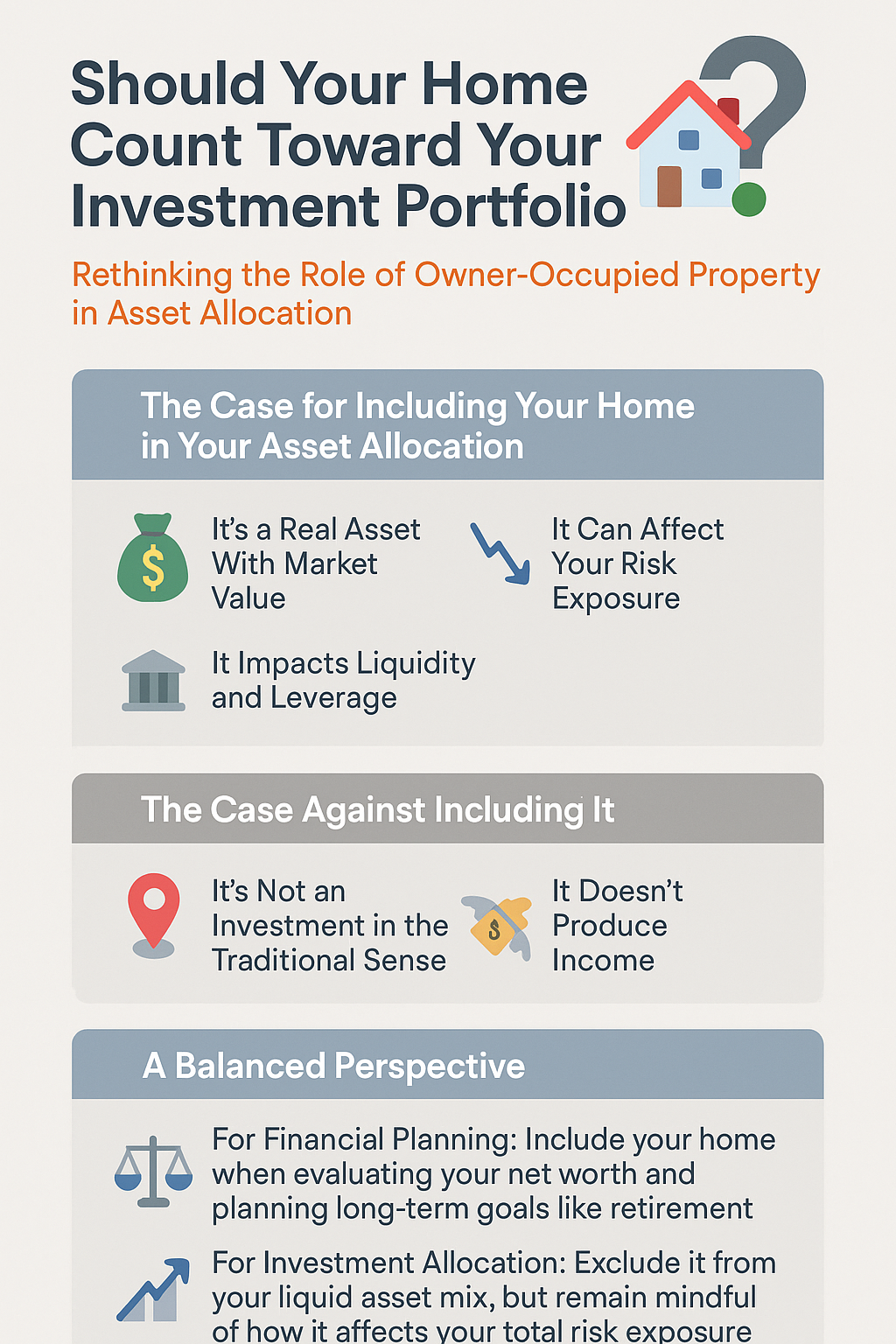
SAAS Tools for Investor Empowerment, Listed Asset Search, Portfolio Construction & Review

SAAS Tools for Investor Empowerment, Listed Asset Search, Portfolio Construction & Review
Rethinking the Role of Owner-Occupied Property in Asset Allocation

📈 For Financial Planning: Include your home when evaluating your net worth and planning long-term goals like retirement.
📉 For Investment Allocation: Exclude it from your liquid asset mix, but remain mindful of how it affects your total risk exposure.
💡 There’s no universal answer, but treating your home thoughtfully within your broader financial picture can lead to smarter and more holistic planning.